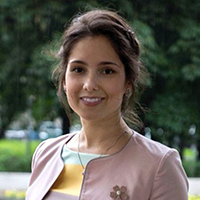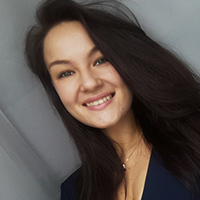HSE Graduates Win National Research Competition
Work by graduates of the HSE undergraduate programme in sociology took first place at the Russian national undergraduate and graduate student academic research competition in the social sciences category. In addition, research by a graduate of the HSE St. Petersburg won an audience’s choice award.
The Russian national research competition is held as part of the Science of the Future research forum, which the Russian Ministry of Education and Science has organised at Russia’s top universities for three years now. This year’s forum, which took place at N. I. Lobachevsky State University of Nizhny Novgorod, had more than 400 research competition finalists from 160 different schools around Russia. The goal of the forum is to help young researchers understand the global objectives that stand before Russian science, as well as to identify today’s most sought-after results, discuss key methods of professional advancement in the academic community, and talk about the importance of popularising science as a whole. There were 12 sections at the forum, and the programme focused on key objectives set in Russia’s Strategy for Scientific and Technological Development. The programme was devoted to thematic tracks, such as Science and Society, Responding to Big Challenges, and Building a Career.
The research conducted by undergraduate sociology alumni Elena Beylina, Daria Kanter, Nadezhda Lyalina, and Alexandra Klementyeva focused on the motives and institutional conditions of overworked office workers in Moscow.

Elena Beylina (presenter)
My colleagues used Moscow as an example to study the motives, reasons, and strategies behind avoiding overworking office workers. We began researching this topic while we were still juniors at HSE. It was our capstone project. We identified two key models of employment – project-based (or post-Fordist) and classical (bureaucratic), which enforce strict control over when employees arrive to and leave work. In the project-based model people have a freer schedule, but they are sometimes overworked without actually realising it. In the bureaucratic model people often overwork themselves intentionally in the hope that they’ll get promoted. Both, however, are afraid of disrupting the work-life balance. Winning last year’s HSE student research paper competition, where we got second-degree diplomas, made it clear that the topic was relevant and would find a response. Before the research competition, we participated in several other conferences, and my part of the research – which focused on office workers’ impressions about the length of a normal workday and when they felt overworked, as well and the boundaries between the two – also won in the main category of the Russian Public Opinion Research Centre student research competition. In working on the project, we quickly realised that practically no research had previously been done on the topic, and there were no academic articles containing the word ‘overworked.’ Because of this, we plan to continue developing the topic and to try putting it into a global context by identifying intercultural characteristics.
In addition, the research project by Yana Konina, who received her bachelor’s from the undergraduate management programme at HSE St. Petersburg, analysed hackathons as a way of boosting innovation among employees of international IT corporations. Konina won an audience’s choice award for her work.

Yana Konina
Research is oftentimes written just to be filed away and never used, but my supervisor Yulia Sannikova and I wanted to do something practical and useful. For my study, I used the company Dell EMC’s St. Petersburg Development Centre. By the end of 2016, the company had already held two hackathons, yet there was not a single study done on their impact, reception, or overall effect. By analysing company data I was able to identify organisational shortcomings and problems with future project development. I also determined the value the hackathons had for participants and saw the difference in how different groups of participants viewed the hackathon. From a theoretical standpoint, one of my main objectives was to fill the gap, as there had not yet been any research completed on the topic. From a practical standpoint, I had to analyse the company’s experience and come up with recommendations on how to improve the event. I think I got the audience’s choice award because the topic was interesting and I was personally involved in the work. Dell EMC also praised my work, and I now work for them and get to see a lot of things from the inside. This opens up new opportunities for me to further develop my research.
Yulia Sannikova
See also:
Prepare for the INTO HSE Olympiad with HSE Students
Winners of the INTO HSE International Maths Olympiad receive scholarships and admission offers to 37 different programmes at HSE University. Angelina Yudina, a master's student and invited instructor of maths at the Faculty of Economic Sciences, offers a video lesson where she analyses the demo version of the maths problems from the Olympiad.
Entries for ‘Nature and Climate’ Photography Contest Accepted till Late August
The HSE Faculty of Geography and Geoinformation Technology has become one of the organisers of the ‘Nature and Climate’ photography contest. The goal of the contest is to celebrate the beauty of nature and its connection with climate, as well as to showcase modern approaches to studying natural ecosystems and their role in climate regulation. The contest is open to all, and the best photographs will be displayed at an exhibition in September, timed to coincide with the fifth anniversary of the faculty.
Faculty of Computer Science Members Win Prizes in ICPC Challenge Championship
The International Collegiate Programming Contest (ICPC) Challenge took place at the end of August. Unlike the traditional ICPC format, in which teams of three students solve a set of algorithmic tasks, participants of the ICPC Challenge must individually solve an optimisation problem that is relevant to science-driven industry, but which does not have an exact algorithmic solution. In the end, prize places were taken by Mikhail Gustokashin, Director of the Centre of Student Competitions at the HSE University Faculty of Computer Science (FCS), and Dmitry Rempel, student of the faculty.
‘Ecology Provides the Best Opportunities for Professional and Personal Development of Young People’
In early May, the HSE Institute of Ecology and the International Children's and Youth Award ‘Ecology is Everyone's Business’ held a joint seminar in Dagestan, where they discussed the launch of youth environmental projects for federal and international competitions. At the meeting, the Institute's experts presented methods of organising project activity in the field of ecology and sustainable development for educators and young people in Dagestan. Teachers and students from more than 50 schools, colleges and universities of the republic took part in the event.
HSE Prep Year Students Present Their Research Papers at International Conference in Tomsk
From April 25 to 27, a scientific student conference was held at Tomsk Polytechnic University (TPU). It was attended by international graduate students and postgraduate students from 57 countries, including four students from the HSE Preparatory Year programme. The HSE News Service talked to the conference organisers and participants about their impressions of the event.
Winner of the International KIVO Competition of Innovations in Education Announced in Nizhny Novgorod
The final 10 teams presented their projects to experts in a pitching session at the finals of the KIVO Competition of Innovations in Education. The project defence and award ceremony took place as a side event of the Global Impact Conference, an international platform that brings together experts in the field of sustainable development.
‘The Competition Gave Young Researchers an Opportunity to Take the Initiative’
In September, HSE University announced the results of a competition of digital projects by early-career HSE scientists. The event was organised within the framework of the strategic project ‘Digital Transformation: Technologies, Effects, Efficiency’. The organisers selected 8 out of 22 applications. The research teams have already started to implement their projects, and the results will be presented at the end of November. The HSE News Service shares the details of three of the highest-scoring projects in the competition. The creators of the projects are staff members of the HSE Center for Language and Brain, MIEM, and the Faculty of Computer Science.
Over 7,000 Students Take Part in Data Analysis National Olympiad
Data analysis enthusiasts from different regions of Russia and 13 foreign countries recently took part in the Data Analysis National Olympiad (DANO). The results of the first round will be announced on October 20th.
HSE ICEF Students Are among the Winners of Econometrics Universiade
The results of the final round of the 2022 Econometrics Universiade have been announced. As always, ICEF undergraduate students are among the leaders – Vladimir Averin won the overall competition, while Gleb Kudryashov was also among the prize-winners.
Submarine and French Confectioner's Shop—Winners of the Top Class Research Competition Announced
This year’s final stage of Top Class, the All-Russian Competition of Schoolchildren’s Research and Projects, held by HSE University, has come to a close. About a thousand 8th—11th graders from 7 countries and 69 regions of Russia participated in the contest. The winners and runners-up were announced at the closing ceremony in the HSE Cultural Centre. They received special prizes from partner companies.


